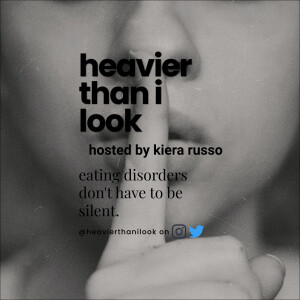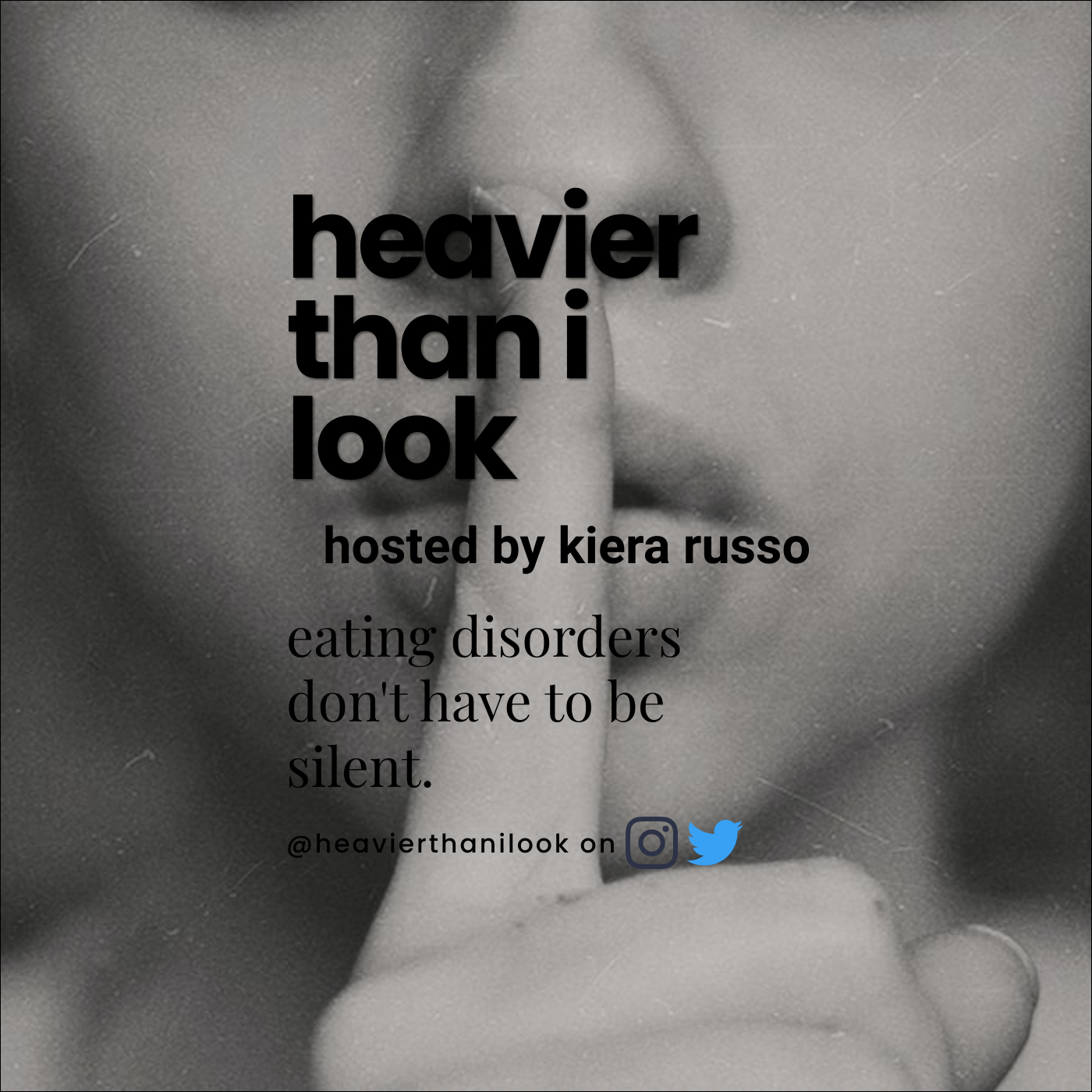Episodes

Wednesday Dec 29, 2021
Lady Diana Spencer
Wednesday Dec 29, 2021
Wednesday Dec 29, 2021
Bibliography (show notes):
https://www.rogerebert.com/reviews/spencer-movie-review-2021
https://time.com/6113603/spencer-princess-diana-true-story/
https://www.nytimes.com/2021/11/04/movies/spencer-review.html
https://www.vulture.com/article/spencer-kristen-stewarts-princess-diana-is-devastating.html
https://www.tyla.com/tv-and-film/spencer-film-diana-bulimia-eating-disorder-charity-beat-20211105
https://www.gawker.com/media/spencer-ends-with-diana-in-a-car
https://slate.com/culture/2021/11/spencer-kristen-stewart-princess-diana-movie-accuracy.html
https://www.refinery29.com/en-us/2020/11/10168677/princess-diana-bulimia-the-crown-season-4
https://www.insider.com/what-the-crown-got-wrong-about-princess-diana-eating-disorder-2020-12
https://studybreaks.com/tvfilm/the-crown-eating-disorder/
https://www.vanityfair.com/hollywood/2020/11/princess-diana-bulimia-the-crown
https://www.instyle.com/reviews-coverage/princess-diana-bulimia-the-crown-accurate

Friday Dec 24, 2021
Roxanne Gay‘s ”Hunger” Review
Friday Dec 24, 2021
Friday Dec 24, 2021
Roxanne Gay's memoir is a story of a body. Yet what “body” means carries so much more depth, so therefore it is a story about the several thousand things other than the body that contribute to the formation of the body. In this review, I discuss Gay's desire to live beyond her body, the gendered politics in taking up space, and how the weight of trauma is a permanent mark, impossible to lose.
Bibliography (show notes):
https://www.nytimes.com/2017/07/14/books/review/hunger-a-memoir-of-my-body-roxane-gay.html
https://www.newyorker.com/books/page-turner/roxane-gays-complicated-hunger
https://www.theatlantic.com/entertainment/archive/2017/06/the-boldness-of-roxane-gays-hunger/530067/
https://slate.com/culture/2017/06/the-hunger-to-stop-hurting.html

Friday Dec 17, 2021
Set Point Theory & BMI
Friday Dec 17, 2021
Friday Dec 17, 2021
Setpoint theory describes a theory of weight maintenance in which one’s weight is genetically predetermined in a preferred range, explaining that your body will do what it must in order to maintain this range. Diets fail because our bodies and our weights are genetically pre-determined, unable to be commodified by the harmful BMI metric, which ignores several crucial details in calculating a person's relative health. This episode dives deep into both of these concepts and their standing in the medical field, uncovering significant chasms of misleading information.
Bibliography (show notes):
Christensen, Jen. Calling BS on BMI: How Can We Tell How Fat We Are? | CNN. CNN, 16 Aug. 2017, www.cnn.com/2017/08/16/health/bmi-measure-fat-questions/index.html.
Ghoshal, Malini. “Set Point Theory and How It Relates to Diet and Weight Loss.” Healthline, Healthline Media, 19 Mar. 2020, www.healthline.com/health/set-point-theory#summary.
Müller, Manfred J et al. “Is there evidence for a set point that regulates human body weight?.” F1000 medicine reports vol. 2 59. 9 Aug. 2010, doi:10.3410/M2-59
Oliver, J.E. (2006). Fat Politics: The Real Story Behind America’s Obesity Epidemic. (pp. 16-22). New York: Oxford University Press.
Ratini, Melinda. “Set Point Weight: Why You May Regain Weight after Losing It.” WebMD, WebMD, 19 May 2021, www.webmd.com/diet/obesity/what-is-set-point-weight#2.
“Set Point Theory: What It Is and How to Know If You're at It.” NourishRX, 21 Sept. 2021, nourishrx.com/set-point-theory/.
“Week One: The Science of Set Point.” BIDMC of Boston, 12 Oct. 2017, www.bidmc.org/about-bidmc/wellness-insights/nutrition/week-one-the-science-of-set-point

Friday Dec 10, 2021
The Transexperience of Eating Disorders
Friday Dec 10, 2021
Friday Dec 10, 2021
Transgender individuals are four times more likely than their cisgender female counterparts to self-report an ED diagnosis, two times as likely to report ED symptomology, and have significantly higher rates of attempted or successful suicide. Thus, EDs in the trans community are horrifically rampant and especially dangerous. A transgender individual may develop an ED to create gendered features and conform to a masculine or feminine societal ideal.
All of us who have suffered from or witnessed an ED in any capacity know how tied up to body image it is. Considering that transgender people live in a body that does not feel true or like home, these body image disturbances can become even more heightened: control of food becoming the mechanism by which to modify their appearances. A tragic contradiction.
Bibliography (show notes):
“Eating Disorders in the Transgender Community.” The Emily Program, 5 June 2020, www.emilyprogram.com/blog/eating-disorders-in-the-transgender-community/.
Ekern, Baxter. “Why Transgender People Are More Likely to Develop an Eating Disorder.” Eating Disorder Hope, 4 Sept. 2020, www.eatingdisorderhope.com/blog/transgender-people-likely-develop-eating-disorder.
Harvey, Rachel. “Eating Disorders Do Not Discriminate: Trans Teens Face Greater Risk - Penn Medicine.” Eating Disorders Do Not Discriminate: Trans Teens Face Greater Risk - Penn Medicine, www.pennmedicine.org/news/news-blog/2019/march/eating-disorders-do-not-discriminate-trans-teens-face-greater-risk.
“The High Risk of Eating Disorders in Trans Men and Women.” Eating Disorders in Trans Men and Women – San Diego –, 27 June 2019, www.sharp.com/health-news/the-high-risk-of-eating-disorders-in-trans-men-and-women.cfm.
Lauren Muhlheim, PsyD. “Eating Disorders in Transgender People.” Verywell Mind, Verywell Mind, 31 May 2021, www.verywellmind.com/eating-disorders-in-transgender-people-4582520.
O’Melia, Anne Marie. “What's Driving Eating Disorders in Trans Patients?” Medical News, MedpageToday, 3 July 2021, www.medpagetoday.com/opinion/second-opinions/93407.
Rebecca C. Kamody, Kimberly Yonkers, Emily I. Pluhar, and Christy L. Olezeski.LGBT Health.Jun 2020.170-173.http://doi.org/10.1089/lgbt.2019.0354
Savereide, Erik. “Gender Dysphoria and Eating Disorders.” Gender Dysphoria and Eating Disorders | Duke Center for Eating Disorders, eatingdisorders.dukehealth.org/education/resources/gender-dysphoria-and-eating-disorders.

Friday Dec 03, 2021
Seeing Yourself Again
Friday Dec 03, 2021
Friday Dec 03, 2021
In the brutal lens of an ED, seeing yourself in a mirror or in pictures can be incredibly triggering. This is one of the pitfalls of self-objectification during the eating disorder, where we are ruled by parts of ourselves and how they measure up to a thin ideal. This lens at which we view ourselves does not automatically change the day we decide we want to get help. At any point during recovery (most especially physical recovery), seeing our bodies transform for health can be challenging. This episode focuses on how we confront our image again, prioritizing recovery, self-respect, and reframing representations of the space we live within.
Bibliography (show notes):
“Difficulty with Skewed Body Image.” National Eating Disorders Association, www.nationaleatingdisorders.org/difficulty-skewed-body-image.
Hagen, Uta, et al. Respect for Acting. John Wiley & Sons, Inc., 2008.
Mitchell, Kylie. “On Seeing a Photo of Yourself and Not Liking How You Look.” ImmaEATthat, immaeatthat.com/2018/05/15/on-seeing-a-photo-of-yourself-and-not-liking-how-you-look/.
Muhlheim. “Say Cheese! How to Be in and Celebrate Photos.” Eating Disorder Therapy LA, 19 May 2020, www.eatingdisordertherapyla.com/say-cheese-how-to-be-in-and-celebrate-photos/.
Rollin, Jennifer. “For When You Can't Stand a Photo of Yourself.” THE EATING DISORDER CENTER, www.theeatingdisordercenter.com/blog/for-when-you-cant-stand-a-photo-of-yourself.

Friday Nov 26, 2021
Vanity Sizing & Clothing As Trigger
Friday Nov 26, 2021
Friday Nov 26, 2021
Vanity sizing is a phenomenon that explains size labels being labeled as smaller than their actual, true size. This is thought to preserve the dignity of smaller numbers, in which most customers feel more confident, given our society’s overwhelming dependence on self-value defined numerically. Understandably, situations of ill-sizing can affect one's emotional well-being and self-esteem, especially if it is during a fragile state of attempted recovery. And especially if you might exist in a larger body, inflation sizing reflects the ideology that smaller bodies (and numbers for defining those bodies) are more desirable.
Bibliography (show notes):
Clifford, Stephanie. “One Size Fits Nobody: Seeking a Steady 4 or a 10.” The New York Times, The New York Times, 25 Apr. 2011, www.nytimes.com/2011/04/25/business/25sizing.html.
Dockterman, Eliana. “Clothing Sizes: How Vanity Sizing Made Shopping Impossible.” Time, Time, time.com/how-to-fix-vanity-sizing/.
Dooley, Roger. “The Psychology of Vanity Sizing.” Forbes, Forbes Magazine, 29 July 2013, www.forbes.com/sites/rogerdooley/2013/07/29/vanity-sizing/?sh=6c0efae81e32.
Kathleen, Author. “Apparently, Anyone Who Wears Clothes Is a Sizing Expert.” The Myth of Vanity Sizing, 21 June 2018, vanitysizing.com/journalists/apparently-anyone-who-wears-clothes-is-a-sizing-expert/#more-108.
New Matilda. “Vanity Sizing: The Lie Harming Women's Health.” New Matilda, 15 Sept. 2015, newmatilda.com/2015/07/11/vanity-sizing-lie-harming-womens-health/#.
O'Connell, Edaein. “The Deeply Negative Impact of Vanity Sizing.” Metro, Metro.co.uk, 6 Mar. 2021, metro.co.uk/2021/03/06/the-deeply-negative-impact-of-vanity-sizing-13988772/.
Schrobsdorff, Susanna. “Fashion Designers Introduce Less-than-Zero Sizes.” Newsweek, Newsweek, 1 Dec. 2010, www.newsweek.com/fashion-designers-introduce-less-zero-sizes-112005.
“Understanding Vanity Sizing.” SizeCharter, www.sizecharter.com/clothing-fit-and-measurement/understanding-vanity-sizing.
Yazolino, Nicole, et al. “Vanity Sizing and Size Charts: A Brief History - Fit Analytics.” Fit Analytics Blog, 31 Mar. 2021, blog.fitanalytics.com/history-of-vanity-sizing-and-size-charts/.

Thursday Nov 25, 2021
Our Beliefs, from Prison to Freedom (ft. Megan Rogers)
Thursday Nov 25, 2021
Thursday Nov 25, 2021
A Thanksgiving special from HTIL! Wishing you the most pain-free, trigger-free, peaceful holiday. Enjoy this bonus episode where Megan and I have a conversation about letting go of beliefs that begin eating disorders in the first place; and what this means within a society that clashes with our own new values. We become what we believe, which makes the recovery of our souls and perceptions of equal importance in ED recovery.

Saturday Nov 20, 2021
ADHD & Designing Your Recovery - Megan‘s Story (part two)
Saturday Nov 20, 2021
Saturday Nov 20, 2021

Sunday Oct 31, 2021
Megan‘s Story (Part One)
Sunday Oct 31, 2021
Sunday Oct 31, 2021
Megan Rogers, a senior at the University of Notre Dame studying marketing and anthropology, charts her journey through an eating disorder and ADHD diagnosis. She speaks of early memories of using food as self-medication to manage dopamine dysregulation. The need for stimulation and hyper fixation that characterizes Megan's ADHD manifested into many beautiful outcomes, but also into several eating disorders, including orthorexia and bulimia. Her ultimate belief is that ADHD is a superpower if it can be channeled in the right way. We will continue this discussion in next week's episode...

Sunday Oct 17, 2021
Exercise Intentionality
Sunday Oct 17, 2021
Sunday Oct 17, 2021
Study upon study proves that moderate, frequent exercise has many physical and health benefits. However, it is important to examine the ways in which diet and fitness culture are entangled and thus how exercise may be a toxic force in our lives. Why do you exercise: to confront your body in the brutal light of self-objectification and dehumanization in a ceiling to floor, wall to wall mirror? A discussion that is begun in today's episode...
Bibliography (show notes):
“7 Great Reasons Why Exercise Matters.” Mayo Clinic, Mayo Foundation for Medical Education and Research, 11 May 2019, www.mayoclinic.org/healthy-lifestyle/fitness/in-depth/exercise/art-20048389#:~:text=Regular%20physical%20activity%20can%20improve,energy%20to%20tackle%20daily%20chores.
Fitness. “Disengaging with Diet Culture.” Reimagym, 4 Apr. 2021, reimagym.com/disengaging-with-diet-culture/.
Semeco, Arlene. “The Top 10 Benefits of Regular Exercise.” Healthline, Healthline Media, 18 June 2021, www.healthline.com/nutrition/10-benefits-of-exercise#TOC_TITLE_HDR_11.
Toler, Melissa. “I'm Reclaiming Fitness from Diet Culture.” Melissa Toler, Melissa Toler, 27 Sept. 2020, www.melissatoler.com/blog/im-reclaiming-fitness-from-diet-culture.
“Why We Should Exercise - and Why We Don't.” Harvard Health, 26 Aug. 2019, www.health.harvard.edu/newsletter_article/why-we-should-exercise-and-why-we-dont.
26, Zoe Weiner・February. “Why Fitness Trainers Need to Educate Themselves on Eating Disorder Recovery.” Well+Good, 26 Feb. 2021, www.wellandgood.com/fitness-eating-disorders/.
Byrne, Christine. “How to Tell If Your Relationship with Exercise Is Actually Toxic.” HuffPost, HuffPost, 23 Aug. 2021, www.huffpost.com/entry/how-to-tell-if-relationship-exercise-toxic_l_5efb3f86c5b612083c52ff7d.
ElKader, Nada Abd. “Don't Lose Yourself in Toxic Gym Culture.” Identity Magazine, Identity Magazine, 27 Jan. 2020, identity-mag.com/dont-lose-yourself-in-toxic-gym-culture/.
Parker, Ilya. “Some Examples of Toxic Fitness Culture.” Decolonizing Fitness, decolonizingfitness.com/blogs/decolonizing-fitness/some-examples-of-toxic-fitness-culture#:~:text=Some%20Example%20of%20Toxic%20Fitness%20Culture%3A&text=The%20belief%20that%20fit%20has%20a%20look.&text=The%20belief%20that%20your%20body,to%20take%20care%20of%20ourselves.
Phelan, Helen. “Compare Apple Watch and Whoop Review for Work from Home Mental Health.” Helen Phelan Studio, Helen Phelan Studio, 12 Mar. 2021, helenphelanstudio.com/journal/how-fitness-trackers-distract-your-bodily-intuition.

